Top 10 Companies in Indonesia
The Top 10 list of the largest companies in Indonesia is compiled and published bi-annually by the MarcoPolis research team. The numerical rankings are calculated by market capitalization from each company’s 2015 annual reports. The list does not include large private conglomerates.
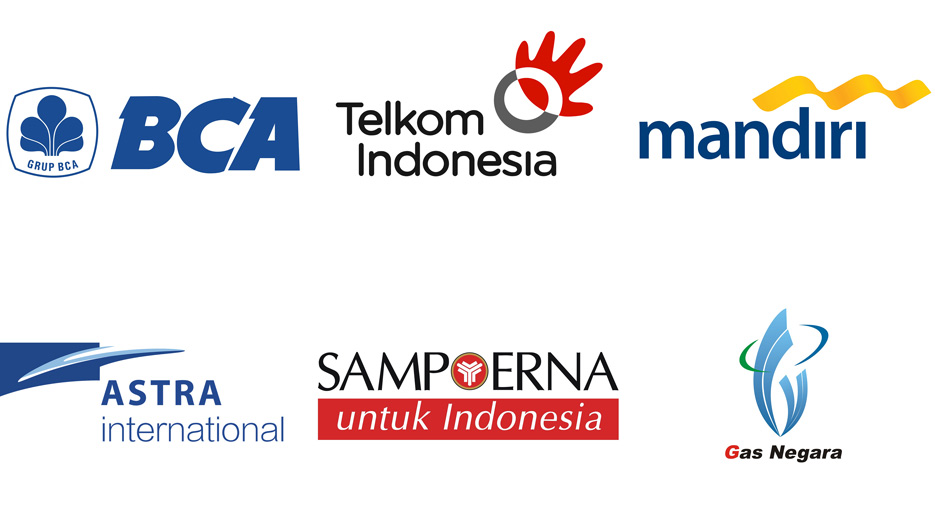
Marcopolis ranked the largest companies in Indonesia. The ranking is based on the market capitalization of companies as part of the the business report on Indonesia. Group BCA is No. 1, and Sampoerna, at No. 2, is the second largest company in Indonesia.
The research team searched the market capitalization and arrived at a list of 18 companies that have market capitalization in excess of US$ 5 billion. Together the top 18 companies account for US$ 228 billion with US$ 14 billion in profits.
The List – Results to Date
#1 PT Bank Central Asia Tbk
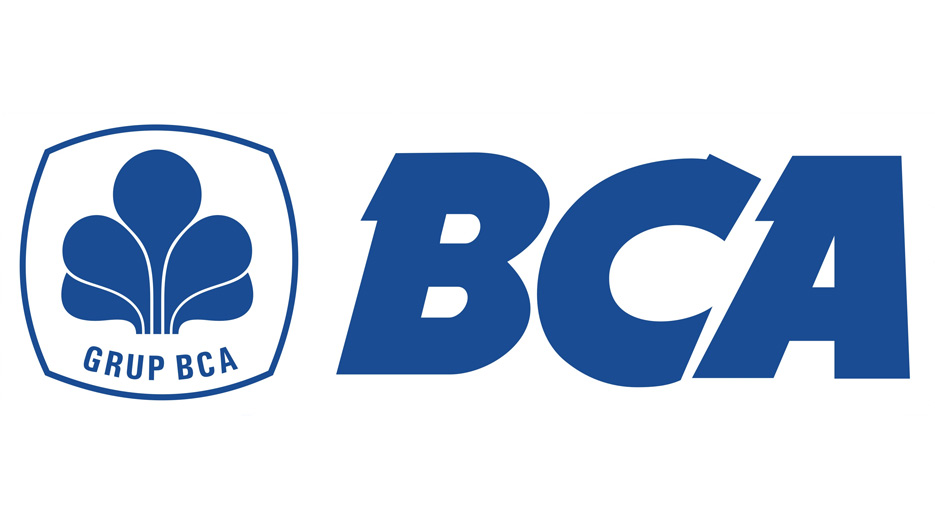
PT Bank Central Asia Tbk is an Indonesia-based company primarily engaged in banking sector.
And are Indonesia’s largest lender by market value and the second largest bank by assets. With the bank experiencing a remarkable recovery from the Asian Financial Crisis in the late 1990s when the Indonesian banking system almost went bankrupt.
In terms of market capitalization, BCA is one of the largest companies in Indonesia. It provides both commercial and personal banking services through its 1000-plus branches across the country.
BCA is partly controlled by the Djarum Group, one of Indonesia’s largest conglomerates, with its businesses ranging from cigarette manufacturing to property development and management.
It operates its bank under the name Bank BCA or BCA. Besides conventional banking, it also offers Sharia-compliant banking services through its subsidiary, PT Bank BCA Syariah.
Its other subsidiaries include PT BCA Finance, which is engaged in financing business; PT BCA Sekuritas, which provides securities underwriting and brokering services; PT Asuransi Umum BCA, which provides general insurance, and BCA Finance Ltd, which is engaged in money lending business.
Year on year Bank Central Asia Tbk PT grew revenues 11.80% from 52.86tn to 59.09tn while net income improved 9.30% from 16.49tn to 18.02tn, with an net profit margin of 36.5%, and operating margin of 45.83% and return on equity of 20.62% according to Reuters.
#2 HM Sampoerna
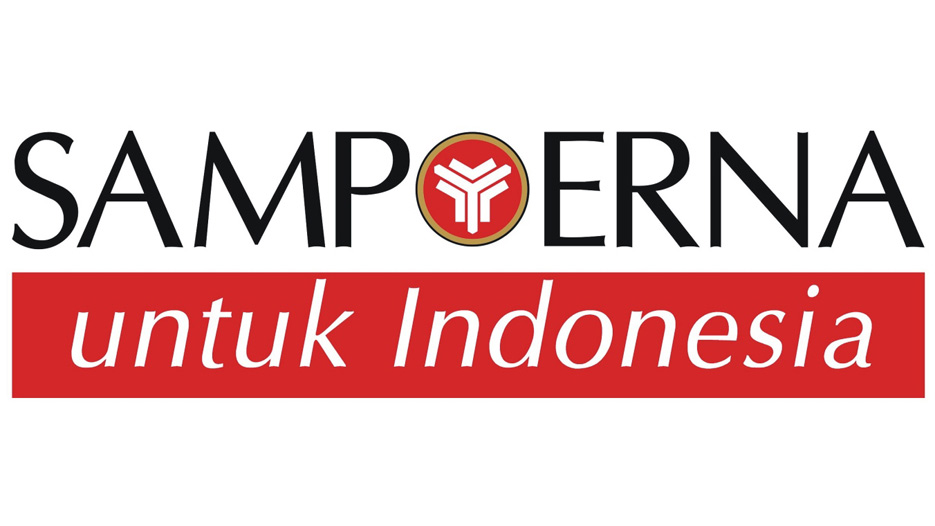
PT Hanjaya Mandala Sampoerna Tbk (HM Sampoerna) is Indonesia’s largest tobacco company controlling about 35 percent of the Indonesian tobacco market making it the number one cigarette brand in Indonesia and the world’s largest kretek (clove) cigarette manufacturer.
It is the producer of some of the most well known kretek cigarette brands, (kretek are the highly popular clove cigarettes that are a trademark of Indonesia).
Such as Sampoerna Hijau, Sampoerna A Mild, and the legendary “King of Kretek” Dji Sam Soe.
HM Sampoerna operates seven manufacturing facilities in Indonesia: two machine-made kretek (‘SKM’) production facilities and 5 hand rolled kretek (‘SKT’) production facilities.
Philip Morris International thus becoming part of one of the world’s largest tobacco companies acquired the company in 2005. Today, the company also distributes Marlboro, the world’s best-selling cigarette brand, in Indonesia. Sampoerna sells and distributes cigarettes through a total of 106 sales offices on the islands of Sumatra, Java, Bali and Kalimantan as well as in Eastern Indonesia.
With its manufacturing facilities are located in Pasuruan, Karawang, Surabaya, Malang, Probolinggo, Lumajang and Jember, Indonesia. The Company markets its products under the brand names of Dji Sam Soe, A Mild, Sampoerna Kretek and U Mild.
Besides its own products, it also distributes white cigarettes produced by PT Philip Morris Indonesia, Marlboro. Its subsidiaries include PT Sampoerna Printpack, which is engaged in printing and packaging, and PT Taman Dayu Property, which are engaged in property development. HM Sampoerna is one of the largest Indonesian companies on the Indonesia Stock Exchange (IHSG) in terms of market capitalization.
#3 Telkom
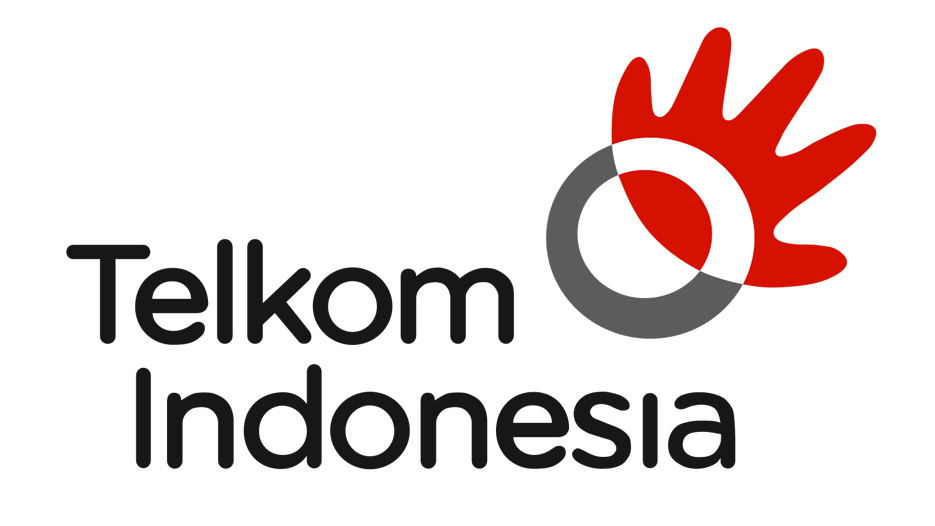
Telekomunikasi Indonesia (better known as Telkom) is Indonesia’s largest telecommunication and network provider as well as one of the largest companies in Indonesia in terms of market capitalization.
The company, majority owned by the Indonesian government, has a dominating market share of between 45 & 50 percent in terms of mobile phone subscribers in Indonesia. It is the parent company of the Telkom Group, which is engaged in a range of businesses that include telecommunication, multimedia, property and financial services.
Telkom Indonesia offers a wide range of network and telecommunication services. These include fixed wire line and fixed wireless telephone connections (CDMA), cellular services (GSM), network and interconnection services, as well as Internet and data communication services.
Telkom also provides services in information, media and edutainment, including cloud-based and server-based managed services, e-Payment and IT enabler services, Pay-Tv, as well as e-Commerce and other portal services. With both smartphone and Internet penetration at relatively lower levels in Indonesia (about 29 percent of the total population has access to Internet), market leader Telkom is well positioned to target further growth.
Telkom’s shares are traded on the Indonesia Stock Exchange (IDX), the New York Stock Exchange (NYSE), and the London Stock Exchange (LSE) and publicly offered without listing in Japan (POWL). However, per 5 June 2014, Telkom withdraws from the London Stock Exchange due to the small proceeds obtained in combination with the high listing fee.
Telkom posted an 5 percent growth in net profit (year-on-year) to IDR 3.7 trillion (USD $322 million) in the first quarter of 2016 on the back of strong revenue streams from data services. Its revenue increased 8.7 percent to IDR 21.3 trillion (USD $1.9 billion) over the same period.
The company has become too large for the domestic market only and thus expanded its focus to international expansion in order to sustain growth. Telkom provides services in various countries, including Myanmar, Macau, Hong Kong, Malaysia, Taiwan, Singapore and USA.
#4 Astra
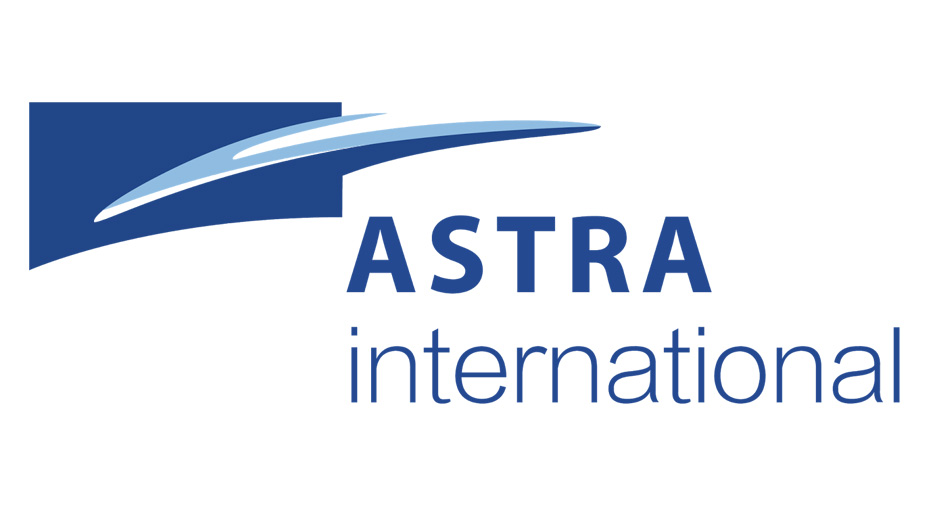
PT Astra International Tbk (Astra) is one of the largest diversified conglomerates in Indonesia. Indeed this investment holding company is often regarded as the barometer of the Indonesian economy due to its presence in various sectors (automotive, agribusiness, heavy equipment, mining, energy, financial services, information technology, and infrastructure & logistics).
Astra International is also the largest Indonesian company listed on the Indonesia Stock Exchange (IDX) in terms of market capitalization.
A highly diversified conglomerate that is present in most major sectors of the Indonesian economy, with the majority of its revenues still originating from its dominant position in Indonesia’s automotive industry, with the company controlling approximately 54 percent of the country’s wholesale car market. The company is Southeast Asia’s largest automotive group and provides a full range of automobile and motorcycle products; although in recent years it has lessened its traditional dependency on the automotive industry by expanding into other sectors to grow other revenue streams.
In the automotive industry, Astra International’s core business, the company holds a domestic market share of between 50 and 60 percent. Through a jointly controlled entity with the Toyota Motor Corporation, Astra holds the exclusive right to sell Toyota vehicles on the Indonesian market. This Toyota brand is the dominant leader in Indonesia’s wholesale car market. Astra also partners with Daihatsu, Isuzu, Nissan Diesel, Peugeot, BMW automobiles, and Honda motorcycles.
In addition to the production and distribution of its automobile lines, Astra offers consultation services for the purchases of new cars, as well as insurance and financing services to support its automotive, motorcycle and heavy equipment sales. For mining, plantation, construction and forestry it delivers heavy equipment, related parts and after sales services.
Other sectors that Astra has started to tap (through its subsidiaries) are coal mining, agribusiness, information technology, infrastructure (toll roads, water supply in Jakarta and an oil tanking terminal in Gresik), as well as IT solutions services.
As of 2015 Astra International employs more than 225,580 people in 183 companies (including subsidiaries, associates and jointly-controlled entities). The company has won numerous corporate awards – both national and international – in recent years and has set the ambitious goal of establishing its brand name globally as the pride of Indonesia by 2020.
#5 BRI
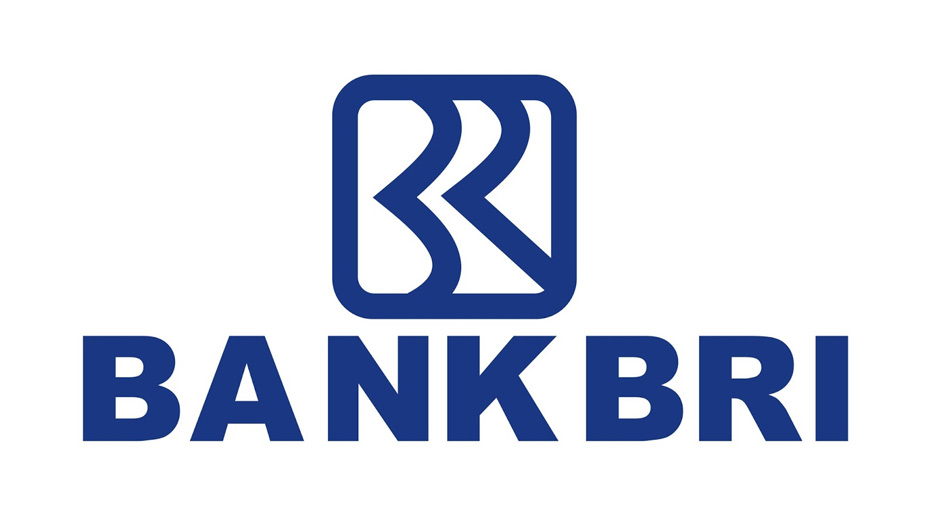
PT Bank Rakyat Indonesia Tbk (BRI) is one of the leading Indonesian commercial banks and the country’s second largest lender by assets. BRI’s business focus is on banking services in micro, small, and medium enterprises (MSME’s).
BRI is the oldest bank of Indonesia and was a state-owned company until 2003 when it listed 30 percent of its shares on the Indonesia Stock Exchange (IDX). It is currently one of the largest Indonesian companies in terms of market capitalization.
Offering a whole range of banking products and services, which include saving products, loan products (particularly micro credit, small commercial loans and consumer credit), e-banking, international business services and Islamic (Sharia) banking.
The company operates seven levels of service offices, consisting of its head office, 18 regional offices, 446 branch offices (including three overseas offices), 545 sub-branch offices, 914 cash offices, 5,000 BRI units, 1,778 teras BRI (sub-micro outlets), and 350 mobile teras BRI outlets.
#6 Bank Mandiri
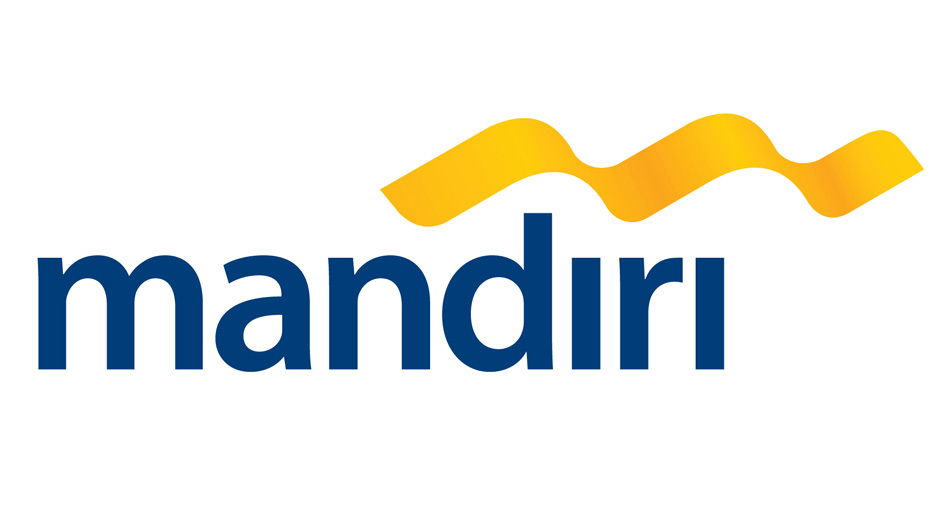
PT Bank Mandiri Tbk is Indonesia’s largest financial institution by assets. Bank Mandiri offers businesses and individuals throughout Indonesia a full set of banking and non-banking products and services. The company also serves international clients with subsidiaries, branches and representative offices in London, Hong Kong, Singapore, Malaysia, Timor Leste, Shanghai, and the Cayman Islands.
Bank Mandiri was established as a consequence of the Asian Financial Crisis. When the Indonesian financial sector had collapsed in the late 1990s, four state-owned banks (Bank Exim, Bank Bumi Daya, Bank Dagang Negara and Bapindo) were merged into Bank Mandiri as part of the government’s bank restructuring program.
Bank Mandiri has six core business segments: Institutional, Corporate, Treasury, Commercial & Business, Consumer Finance, Micro & Retail Banking Bank Mandiri and through its subsidiaries, is active in a broad range of financial services.
Bank Syariah Mandiri has achieved a dominant position in Indonesia’s Islamic banking; Mandiri Sekuritas provides a full range of investment banking and asset management services, and is also a significant player in the government bond market. AXA Mandiri Financial Services provides bancassurance products through Bank Mandiri’s retail branch network. Mandiri Tunas Finance is a nationally distributed multi-finance company specializing in vehicle loans. Bank Sinar Harapan Bali is a specialist micro-lender and Mandiri AXA General Insurance (MAGI) is engaged in non-life insurance business.
Bank Mandiri has experienced a remarkable transformation between 2005 and the present. Around 2005, the bank posted weak financial results, for example a high Non-Performing Loan Ratio (NPL) of over 15 percent. However, through an extensive restructuring program it developed into one of Indonesia’s largest companies (by market capitalization) and one of the country’s leading financial institutions.
#7 Theodore Permadi Rachmat

PT Unilever Indonesia Tbk is one of Indonesia’s largest consumer goods producers. The company’s portfolio of home & personal care and foods & refreshment products contains various well known brands, such as Wall’s, Lifebuoy, Vaseline, Pepsodent, Rinso, Blue Band, Dove, Rexona, and Clear.
The company, which is for 85 percent owned by its Dutch holding company, is one of the largest companies in terms of market capitalization on the Indonesia Stock Exchange.
Unilever Indonesia’s business activities and products comprise the manufacturing, marketing and distribution of consumer goods. This includes soaps, detergents, margarine, ice cream, savory, soy sauce, cosmetic products, tea based beverages and fruit juice.
Products manufactured by Unilever Indonesia can be divided in two business lines: home and personal care products (including soaps, detergents, cosmetics), which account for about 73 percent of the company’s total sales, and foods and refreshment (including margarine, dairy products, ice cream, tea), which account for the remaining 27 percent of sales. It is estimated that each Indonesian household uses at least one product that is sold by Unilever.
In 2012, the Mega Distribution Centre in Cibitung (West Java) started operations. With a floor area of around 80,000 square meters, it constitutes the biggest warehouse in Indonesia for a Fast Moving Consumer Goods (FMCG) company and the largest Unilever warehouse in the world. Unilever Indonesia’s distribution network comprises more than one million outlets across the Indonesian archipelago, more than half of which is covered directly by the company.
About 55 percent of the company’s input costs are linked to foreign currencies. This is why sharp rupiah depreciation constitutes a challenge for Unilever Indonesia.
Per 2016 Unilever Indonesia owns nine factories; seven located in the Jababeka Industrial Zone (Cikarang, near Jakarta) and two in Rungkut (Surabaya). The company’s head office is located in Jakarta. Unilever Indonesia has 39 core brands and nearly 1,000 stock keeping units.
Unilever Indonesia says it has only just begun to tap the potential of Indonesia’s market. With respect to the medium to long term, the company expects to grow further on the back of Indonesia’s demographic profile. Southeast Asia’s largest economy constitutes a young and growing population. In combination with Indonesia’s robust economic growth it creates a rapidly expanding middle class that has increasing disposable income, hence a strengthening consumer force.
#8 PNG
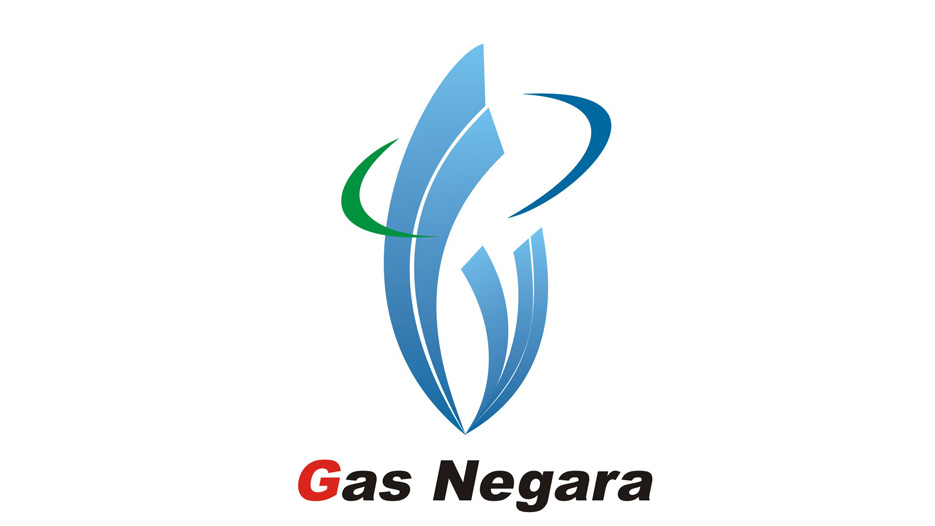
Perusahaan Gas Negara (PGN) is a government controlled gas firm that forms Indonesia’s largest natural gas transportation and distribution company. It operates a distribution network that extends for 3,865 kilometers and a transmission pipeline network that measures 2,047 kilometers.
PGN plays an important role in Indonesia’s electricity production as it sells about 40 percent of its total sales volume to the country’s power generation industry. It also forms one of the largest Indonesian companies in terms of market capitalization.
Perusahaan Gas Negara plans, constructs and develops downstream natural gas businesses, which include the processing, transportation, storage and trading of natural gas. Apart from natural gas, PGN also produces and trades manufactured gas (hydrocarbon gas). The government has given PGN a mandate to develop natural gas infrastructure in Indonesia. In carrying out this mandate, PGN cooperates with local governments, both directly and through regionally owned enterprises.
The company is one of the largest listed Indonesian companies in terms of market capitalization. Indonesia’s power generation industry is PGN’s largest market, consuming about 40 percent of PGN’s total sales volume in 2015.
#9 Gudang Garam
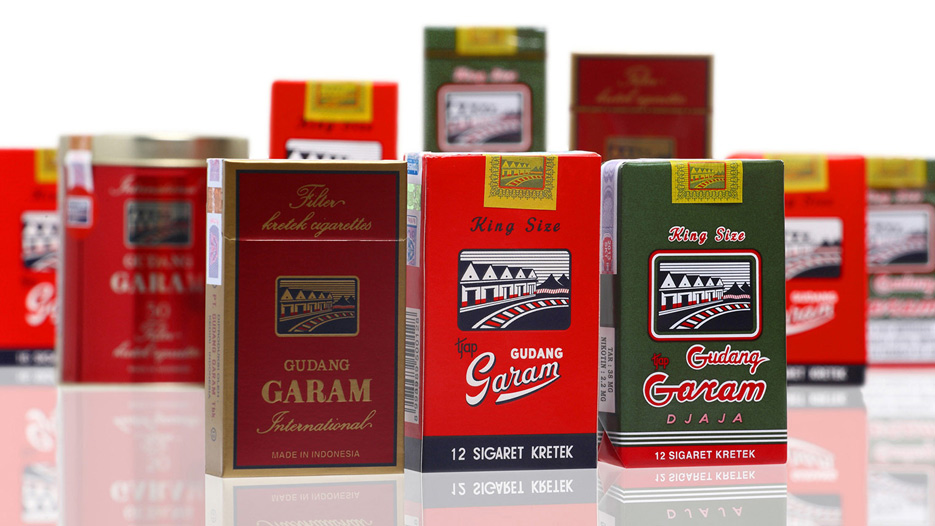
PT Gudang Garam Tbk is an Indonesian company engaged in the manufacturing of cigarettes. The company is a leading manufacturer of kretek cigarettes (these clove-type of cigarettes are a trademark of Indonesia). It produces a wide range of kretek cigarettes including low-tar, low-nicotine variants and traditional hand-rolled kretek, which are distributed domestically and worldwide.
Gudang Garam has established primary and secondary kretek manufacturing operations at two main sites. Kediri (home to the company headquarters) and Gempol. Both sites are located on Java, Indonesia’s most populous island.
Gudang Garam operates an in-house printing facility and has three active subsidiaries: Surya Pamenang, producing paper board used for the manufacturing of Gudang Garam packaging, Surya Madistrindo, sole distributor of the company’s products, and Surya Air which provides non-scheduled air transport services. In 2012, 84 percent of Gudang Garam’s cigarettes production was machine-made, while the remaining 16 percent was hand-rolled kretek.
At end 2015, the company had a market share of about 20.6 percent of the domestic cigarette market. Due to the high number of smokers in Indonesia, Gudang Garam – as well as other companies in Indonesia’s cigarette industry – is a major source of revenue for the Indonesian government in terms of excise duties and corporate income tax. Gudang Garam is one of the companies with the largest market capitalization listed on the Indonesia Stock Exchange (IDX).
#10 BNI
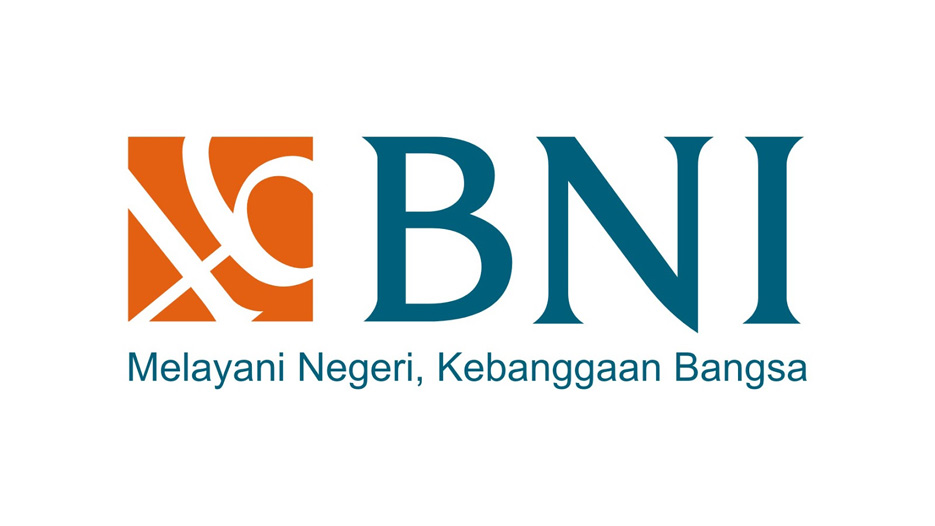
PT Bank Negara Indonesia Tbk (BNI) is the fourth-largest bank of Indonesia in terms of assets, lending and third party funds. It provides financial services that are supported by its subsidiaries in sharia banking (Bank BNI Syariah), financing (BNI Multi Finance), the capital market (BNI Securities), as well as insurance (BNI Life Insurance).
BNI was established by the Indonesian government in 1946 and initially served as the country’s central bank, before assuming the status of commercial bank in 1955. In 1996, BNI became the first state-owned bank to go public on the Indonesia Stock Exchange (IDX) when it sold 25 percent of its equity to the public. At the start of 2015, BNI had 1,766 domestic branches and five overseas branches in New York, London, Tokyo, Hong Kong and Singapore.
Since 2011, BNI put the corporate, middle commercial and small commercial segments under the Director of Business Banking. In addition, BNI has also developed a sector focus lending strategy that focuses on eight key industry sectors including: oil & gas and mining, telecommunications, chemical, agribusiness, wholesale and retail trading, food and beverage, electricity, and construction.
Through the implementation of this strategy, BNI expects to maintain the quality of its loan portfolio in support of solid financial growth in the future.